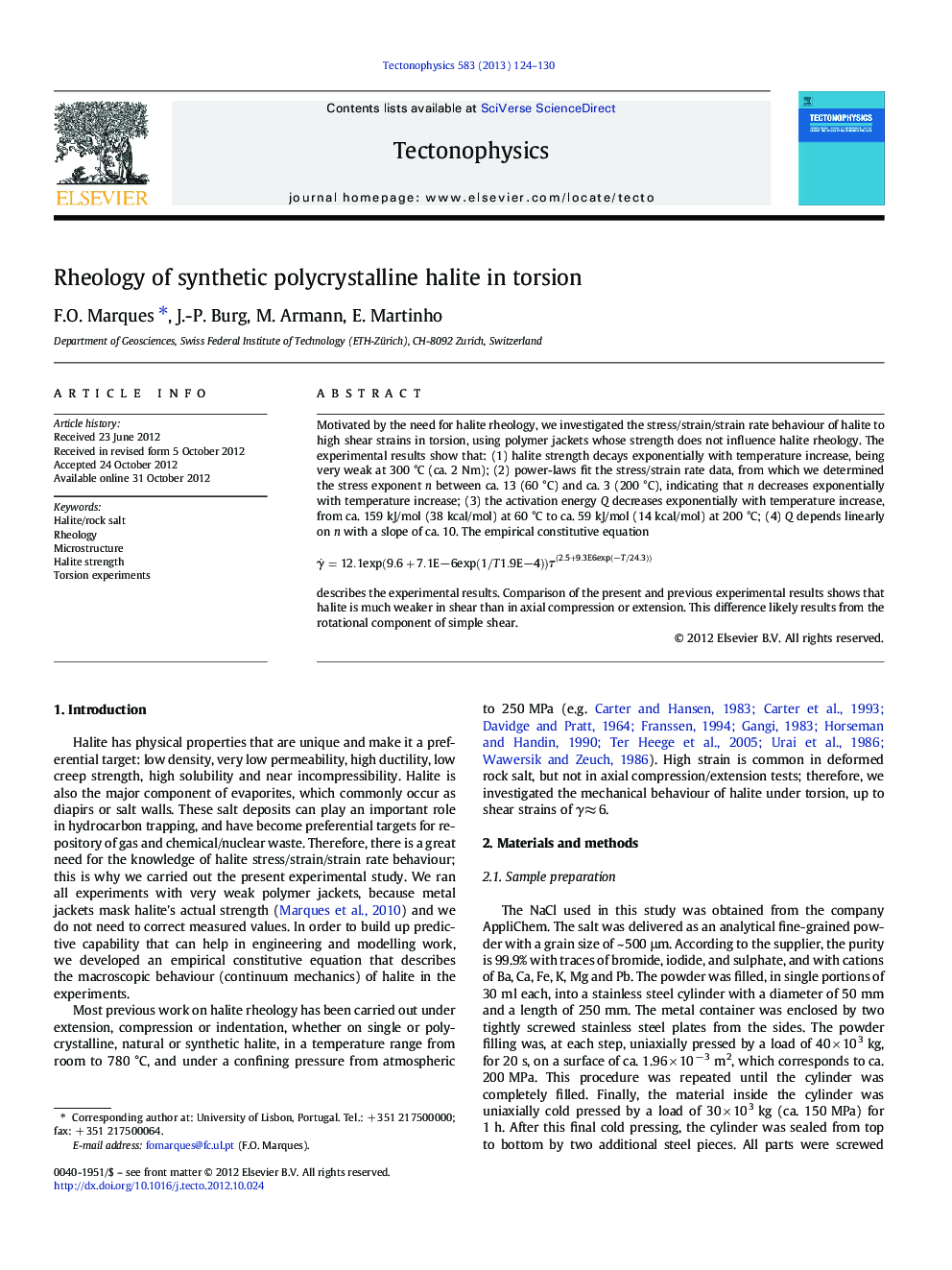| Article ID | Journal | Published Year | Pages | File Type |
|---|---|---|---|---|
| 6434173 | Tectonophysics | 2013 | 7 Pages |
Motivated by the need for halite rheology, we investigated the stress/strain/strain rate behaviour of halite to high shear strains in torsion, using polymer jackets whose strength does not influence halite rheology. The experimental results show that: (1) halite strength decays exponentially with temperature increase, being very weak at 300 °C (ca. 2 Nm); (2) power-laws fit the stress/strain rate data, from which we determined the stress exponent n between ca. 13 (60 °C) and ca. 3 (200 °C), indicating that n decreases exponentially with temperature increase; (3) the activation energy Q decreases exponentially with temperature increase, from ca. 159 kJ/mol (38 kcal/mol) at 60 °C to ca. 59 kJ/mol (14 kcal/mol) at 200 °C; (4) Q depends linearly on n with a slope of ca. 10. The empirical constitutive equationγË=12.1exp9.6+7.1Eâ6exp1/T1.9Eâ4Ï2.5+9.3E6expâT/24.3describes the experimental results. Comparison of the present and previous experimental results shows that halite is much weaker in shear than in axial compression or extension. This difference likely results from the rotational component of simple shear.
⺠We show that halite is significantly weaker in torsion than in axial compression. ⺠There is a power-law dependence of strength on strain rate. ⺠The stress exponent decays exponentially with temperature increase. ⺠The activation energy decays exponentially with increasing temperature. ⺠A new empirical constitutive equation is presented
